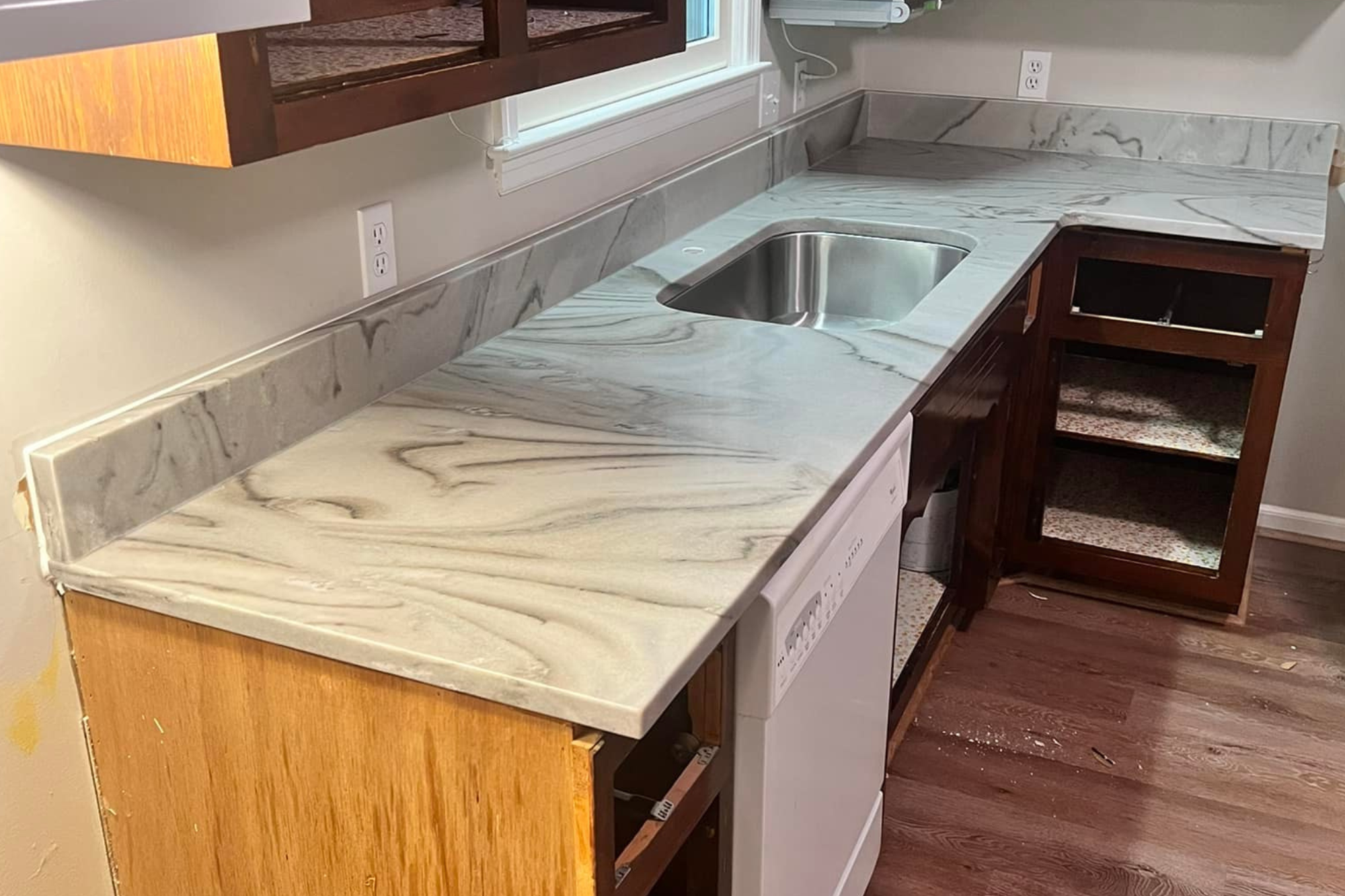When investing in kitchen countertops, it’s natural to expect them to last for years. However, without proper installation, maintenance, and material selection, your countertops may not stand the test of time. Improper care can lead to unsightly damage, shortening the lifespan of even the highest-quality materials. Factors such as heat, impact, moisture, and the use of harsh chemicals can cause your countertops to deteriorate prematurely. With a proactive approach, however, you can ensure that your kitchen countertops continue to enhance your space for years. Understanding the core elements of proper countertop care can guide you in maintaining or selecting the ideal Richmond kitchen countertops that meet your needs.
Key Takeaways
- Kitchen countertops can deteriorate due to improper installation, neglectful maintenance, and exposure to harsh conditions.
- Material selection plays a crucial role in the durability and functionality of your countertops.
- Proper installation prevents shifting, cracking, and water damage, while maintenance keeps surfaces looking pristine.
- Regular maintenance tips include cleaning spills immediately, avoiding harsh chemicals, sealing porous materials, and inspecting for early signs of damage.
Common Causes of Countertop Damage
Several factors can contribute to the premature aging of your kitchen countertops, including poor installation, inadequate maintenance, and material vulnerability. Let’s explore these in detail:
Improper Installation
Improper installation is one of the leading causes of countertop damage. If countertops are not installed level or are adhered using subpar adhesives, you risk misalignment, cracks, or shifting. Even minor imperfections in installation can result in uneven wear, causing the material to degrade more quickly. For a long-lasting countertop, it’s essential to ensure the installation is done by professionals familiar with the nuances of each material.
Inadequate Maintenance
Regular maintenance is key to extending the lifespan of your kitchen countertops, particularly when dealing with porous materials such as granite, marble, or quartz. Neglecting to seal these surfaces regularly or clean spills promptly can cause significant damage. Additionally, using harsh chemicals for cleaning can erode protective layers, leading to discoloration and staining.
Heat and Impact Damage
Heat exposure and physical impact are frequent culprits in countertop deterioration. Hot pans placed directly on surfaces such as laminate or quartz can cause discoloration or blistering. Similarly, dropping heavy objects can result in chips or cracks, which may be challenging to repair. It’s essential to protect your countertops from heat and impact by using trivets and cutting boards.
Water and Moisture Exposure
Moisture damage is particularly problematic for porous materials that aren’t properly sealed. Countertops around sinks or faucets are especially vulnerable to water exposure, which can cause swelling, warping, or mold growth beneath the surface. To avoid these issues, ensure that your countertops are sealed adequately and maintain proper ventilation around moisture-prone areas.
The Role of Material Selection
Choosing the right material for your kitchen countertops can significantly impact their durability. Factors such as your cooking habits, family needs, and budget should all play a role in determining the best material for your kitchen.
- Granite and Stainless Steel: These materials are perfect for avid cooks due to their heat resistance and durability, making them ideal for high-use kitchens.
- Quartz and Solid Surfaces: Quartz is an excellent choice for families, as it resists stains and scratches, making it a low-maintenance option for busy households.
- Budget-Friendly Options: Laminate or tile can serve as cost-effective solutions, but they may not offer the longevity of granite or quartz.
Each material has its strengths and weaknesses. For example, while granite is durable, it may crack or stain if not sealed properly. Quartz is extremely durable but can discolor if exposed to prolonged sunlight. Marble offers a luxury aesthetic but is more prone to scratching and staining due to its porous nature.
Impact of Poor Installation
Even the finest kitchen countertop services can fail if installation is done incorrectly. Poor installation leads to a range of issues, from functional to aesthetic.
- Leveling Issues: An uneven countertop surface will lead to uneven wear and degradation, shortening its lifespan.
- Weak Adhesives: Over time, poor-quality adhesives can fail, causing the countertop to shift, lift, or detach, which compromises both appearance and function.
- Water Damage: Insufficient sealing around sinks and faucets may allow moisture to seep into underlying materials, causing damage to both the cabinetry and the countertop.
It’s crucial to have your countertops installed by professionals who understand the requirements of each material, ensuring that the installation is done correctly.
Proper Countertop Maintenance
To keep your countertops in top condition, regular maintenance is essential. Different materials require different care, but here are some general tips for maintaining the integrity of your surfaces.
Sealing
Porous materials, such as granite and marble, require regular sealing to prevent moisture and stain penetration. Quartz, on the other hand, is non-porous and doesn’t require sealing but should be protected from prolonged UV exposure to avoid discoloration.
Cleaning
Use mild soap and warm water to clean your countertops regularly. Avoid harsh chemicals, which can strip away protective layers, causing discoloration and damage.
Spill Management
Cleaning up spills immediately, especially acidic substances like wine, lemon juice, or vinegar, is essential. These liquids can etch the surface, leading to permanent damage if left unchecked.
Inspection
Regularly inspect your countertops for signs of damage, such as cracks or chips at seams, joints, and edges. Early detection allows for prompt repairs, preventing further deterioration.
Essential Countertop Care Tips
Maintaining your countertops requires a proactive approach. In addition to keeping them clean, here are a few essential care tips to prolong their lifespan:
- Clean Spills Immediately: Liquids like wine or acidic substances can etch the surface if not cleaned up promptly.
- Use Mild Soap: Stick to gentle soap and water for routine cleaning to avoid damaging your countertop.
- Seal When Necessary: Granite and marble should be sealed annually to protect against stains and moisture.
- Avoid Heat Damage: Always use trivets or hot pads to prevent heat damage to your countertops.
- Use Cutting Boards: Prevent scratches and knife marks by always using a cutting board when preparing food.
- Regular Inspections: Periodically inspect for cracks or chips along seams and edges to catch potential issues early.
Choosing Durable Countertop Options
When selecting new countertops, durability is key. The right material can ensure your countertops last for years without showing signs of wear.
- Granite: With proper care, granite can last up to 50 years, making it a long-term investment.
- Quartz: This durable material is scratch and stain-resistant but may discolor under UV exposure.
- Marble: While luxurious, marble requires careful maintenance as it’s prone to staining and scratching.
Your choice of material should align with your lifestyle. For high-use kitchens, durable materials like granite or stainless steel are ideal. If you’re on a budget, laminate or tile can work, but they won’t offer the same long-term benefits.
In Summary
The lifespan of your kitchen countertops Richmond VA, is largely influenced by proper material selection, installation, and maintenance. By selecting the right material, ensuring proper installation, and regularly maintaining your surfaces, you can prolong their lifespan and keep them looking as good as new for years. Investing in quality countertops and maintaining them properly will ensure your kitchen remains both functional and beautiful.
For professional guidance on countertop selection, installation, and maintenance, contact Tiger Granite and Marble, a trusted provider dedicated to helping you make the right choices for your space.

